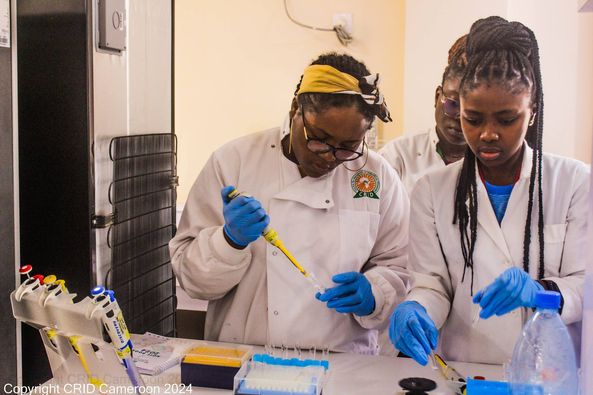The training, which took place from June 25th to July 04th 2024, was organised in the frame of the FlowAfrica Project.
A total of 16 researchers from CRID took part in this training course. The 11-day agenda covered the technical aspects of the FACSCalibur instrument, including its core components: optics and electronics. Participants also learned about cells, antigen density, and antibody labelling, as well as the use of specialized fluorophores and their spectral properties. The session emphasized the importance of proper controls to ensure accurate and reliable cytometry data. Pursuing the theoretical sessions, learners covered panel design, sample preparation, antibody titration, and applications of the technology in biomedical research. Further discussions on using online spectral viewers, staining index and fixation permeabilization were insightful.
Later on, three practical sessions took place in CRID’s Laboratory 1. The trainers and trainees were divided into groups to work on hands-on operation of the FACSCalibur flow cytometer using beads. The practical sessions allowed the participants to get diligent experience with the FACSCalibur instrument. This was an important part of the capacity building training, as it gave the trainees a chance to directly work with the technology they had been learning about theoretically. The laboratory session focused time on data analysis which undoubtedly strengthened the flow cytometry capabilities of participants.

Participants of the training
This capacity building initiative equipped CRID researchers with the knowledge and skills to fully leverage this advanced analytical technology for improved public health research and diagnostics across Africa. As a reminder, the FlowAfrica project aims to develop Flow Cytometry in Africa. It is supervised by Professor Oscar Fornas (Head of Flow Cytometry Unit at Pompeu Fabra University) and the Centre for Genomic Regulation (CRG) through a Charity named TReND. Worthy to note is the great support of TReND in participating in the shipping of the equipment donated to CRID and in funding the training course to ensure the effective transfer of the technology to the institution.






